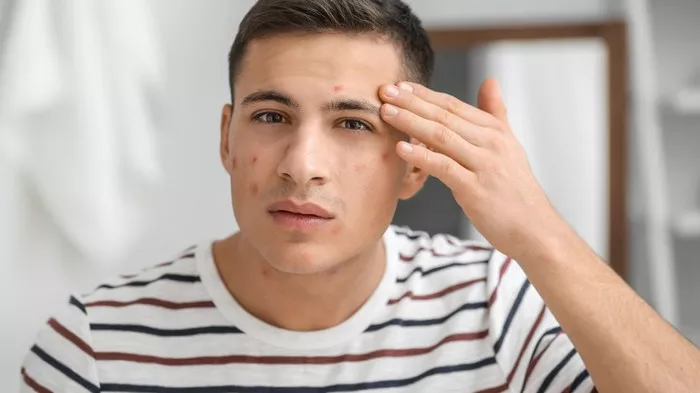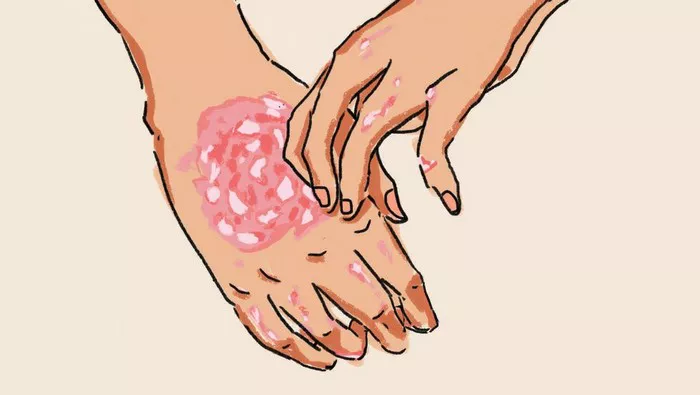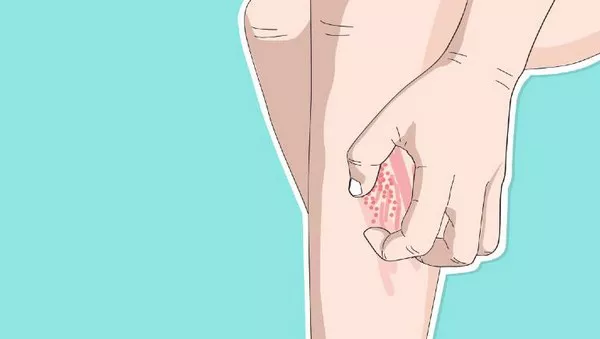Shingles, also known as herpes zoster, is a painful rash caused by the same virus that causes chickenpox, the varicella-zoster virus (VZV). After a person recovers from chickenpox, the virus stays dormant in the body’s nerve tissues. It can later become active again, leading to shingles. The question many people ask is, what triggers the reactivation of the virus? In this article, we will explore the various factors that can bring out the shingles virus.
Understanding Shingles and the Varicella-Zoster Virus
To understand what brings out shingles, it’s important to first know how the virus works in the body. After a person has chickenpox, the varicella-zoster virus does not leave the body. Instead, it travels to nerve tissue near the spinal cord and brain, where it stays inactive for years.
For some individuals, the virus can reactivate later in life. When it does, it travels along the nerve pathways to the skin, causing a rash and intense pain. This reactivation leads to shingles. It is often seen as a strip of blisters on one side of the body, following the path of the affected nerve.
Weakened Immune System
The most common factor that brings out the shingles virus is a weakened immune system. Our immune system is responsible for keeping viruses like VZV in check. When the immune system is compromised, the dormant virus can become active again. There are several reasons why the immune system may weaken:
Aging: As we age, our immune system naturally weakens. This is why shingles is more common in people over the age of 50. The body’s ability to suppress the reactivation of dormant viruses diminishes over time.
Chronic Diseases: Conditions like diabetes, cancer, and autoimmune diseases can weaken the immune system. These diseases often require medications that further suppress immune activity.
HIV/AIDS: HIV attacks the immune system directly, making it difficult for the body to fight off infections. People with HIV or AIDS are at a much higher risk of developing shingles, sometimes even at a younger age.
Immunosuppressive Medications: People who take medications that suppress the immune system, such as corticosteroids or drugs used in chemotherapy, are also at increased risk for shingles. These medications lower the body’s ability to keep the VZV in check.
Stress and Emotional Strain
Emotional stress and strain are common triggers for shingles. Stress can weaken the immune system by releasing hormones like cortisol, which reduce the body’s ability to fight off infections. The connection between stress and shingles is well-documented, although it is still not entirely understood why stress activates the virus. Some theories include:
Cortisol Release: High levels of stress cause the body to release cortisol, a hormone that suppresses immune function. With less immune activity, dormant viruses can reawaken.
Chronic Stress: People who experience chronic stress, such as work-related stress, family issues, or emotional trauma, may be more likely to develop shingles due to constant immune suppression over time.
Physical Trauma or Injury
Physical trauma, particularly to the skin or the nerves, can also bring out shingles. This includes injuries, surgery, or even an illness that causes physical strain. The trauma may act as a signal to the dormant virus, prompting it to reactivate. Some scenarios in which physical trauma may trigger shingles include:
Surgery: Undergoing surgery, especially if it involves nerve tissue or is highly invasive, can weaken the immune system and bring about shingles. In fact, surgery is a known risk factor for shingles outbreaks.
Injury: An injury that causes damage to the skin or nerves can also trigger the virus. Even something as simple as a bad fall or a sprained ankle could, in some cases, lead to shingles.
Illness or Infection: Sometimes, other infections or illnesses, such as a cold or flu, can lower the body’s resistance to infections. If the immune system is already fighting off another infection, the shingles virus may take the opportunity to reactivate.
Hormonal Changes
Hormonal changes in the body can also influence the risk of shingles. These changes may affect the immune system and make it easier for the varicella-zoster virus to reactivate. Common hormonal changes that may bring about shingles include:
Pregnancy: During pregnancy, the body’s immune system is naturally altered to protect the fetus. In some cases, this may cause the shingles virus to reactivate.
Menopause: Women going through menopause may experience hormonal fluctuations that weaken their immune system. The drop in estrogen levels, in particular, has been linked to an increased risk of shingles.
Menstruation: Some women find that shingles outbreaks occur during or just after their menstrual cycle. This is thought to be due to fluctuations in hormone levels around the time of menstruation.
Chronic Conditions and Comorbidities
Certain chronic conditions or comorbidities can also increase the likelihood of developing shingles. These include:
Cancer: People undergoing cancer treatment, especially chemotherapy, are more likely to develop shingles. Cancer treatments like chemotherapy and radiation therapy weaken the immune system, which may allow dormant viruses to reactivate.
Heart Disease: Studies have shown that people with heart disease are at an increased risk of developing shingles. The reason behind this may be related to the stress of dealing with chronic illness or the medications used to treat heart disease.
Autoimmune Disorders: Conditions such as rheumatoid arthritis or lupus require immune-suppressing medications that lower the body’s ability to fight off infections. This puts individuals at a higher risk for shingles.
Exposure to Illness or Infection
Another common trigger for shingles is exposure to another illness or infection. Although shingles itself is not contagious, the virus can be spread to others who have not had chickenpox or the chickenpox vaccine. The following factors may increase the chances of reactivating the virus:
Contact with someone with Chickenpox: If a person who has not had chickenpox comes into contact with someone with an active case of chickenpox, they can develop chickenpox. The subsequent reactivation of the VZV in someone who had chickenpox earlier could then lead to shingles.
Infections like the Flu or Cold: Infections that stress the body’s immune system, such as the flu or a cold, can also trigger the shingles virus to become active.
Poor Diet and Lifestyle Choices
A poor diet and unhealthy lifestyle can have a significant impact on the immune system and increase the risk of shingles. Some common lifestyle factors that may bring out the virus include:
Poor Nutrition: A diet lacking in essential nutrients can weaken the immune system. Vitamins such as Vitamin C, D, and B12 are essential for immune function, and a deficiency in these nutrients can increase the risk of shingles.
Lack of Sleep: Sleep is vital for immune function. When a person doesn’t get enough rest, their body is less able to fight off infections. This can make it easier for the shingles virus to reactivate.
Smoking and Alcohol Use: Smoking and excessive alcohol consumption both weaken the immune system. People who smoke or drink heavily may be more prone to developing shingles.
Other Risk Factors
In addition to the factors listed above, there are other considerations that can make a person more likely to develop shingles:
Family History: People with a family history of shingles are at a higher risk of developing the condition. Genetics can play a role in how well the immune system handles latent viral infections.
Sex and Gender: Some studies suggest that women are at a slightly higher risk of developing shingles compared to men. However, the difference is not significant, and both genders are affected.
Conclusion
Shingles is a painful condition that can be triggered by a variety of factors, many of which are related to a weakened immune system. Stress, physical trauma, hormonal changes, chronic illnesses, and exposure to infections can all bring out the shingles virus. Understanding the triggers for shingles can help people take proactive steps to manage their risk. If you are at risk for shingles or are experiencing symptoms, it is important to speak with a healthcare professional for advice and potential treatment options.
Taking care of your immune system through a healthy diet, regular exercise, and stress management is crucial for preventing shingles and minimizing the impact of the virus if it reactivates.
Related topics



























